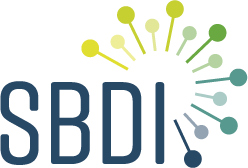During this five-day workshop you will learn how to work with spatial biodiversity data in R, starting with the very basics and ending in slightly more complex analyses similar to methods frequently used in scientific papers. The course is split into five days. You will be introduced to the basic R syntax for dealing with the most common spatial data types as well as specific R-packages to perform basic spatial analysis. You will also learn to mine large biological data sets from big data platforms such as IUCN and GBIF. We will then apply these data, which mostly consist of species occurrences and distribution maps, for downstream analyses and will be displaying the data in different types of plots before we delve more deeply into statistical analyses involving spatial data, including dealing with spatial auto-correlation and the logic behind and purposes of different map projections. Following this we will give a brief introduction to mixed models in a Bayesian framework using the MCMCglmm package in R. We will start from the basics on how to specify the model, followed by some exercises on how to modify our models to include random effects or change the prior expectations. Finally, we will see how to add special types of random effects that are often used in comparative analysis involving several species. The final day will try to combine some of the tools learned from the four different days along with a few new analytical tools and the students will be tasked with working on their own to figure out how to generate and analyze spatial datasets.
At the end of this workshop you will be equipped with the knowledge and tools to produce publication quality spatial analyses and figures for presenting spatial biodiversity data in your research. We encourage you to bring your own data and problems, which we can help you tackle during the course.
Date: 2022-10-03 – 2022-10-07 (9.00 – 16.00)
Place: Online course
Contact: Matthias Obst at Gothenburg Global Biodiversity Center (matthias.obst AT marine.gu.se)
Recommended background: No previous programming experience required but familiarity with R or other common program languages is beneficial.
Course level: PhD level (motivated master students may be able to join in some cases)
Fee: No fee
Credits: 1.0 Credits
Language: English
Course teachers: Sören Faurby, Ferran Sayol
Apply here: https://fubasdoc.gu.se/fubasextern/info?kurs=NFBE303 (Application period 2022-07-05 – 2022-09-05)
